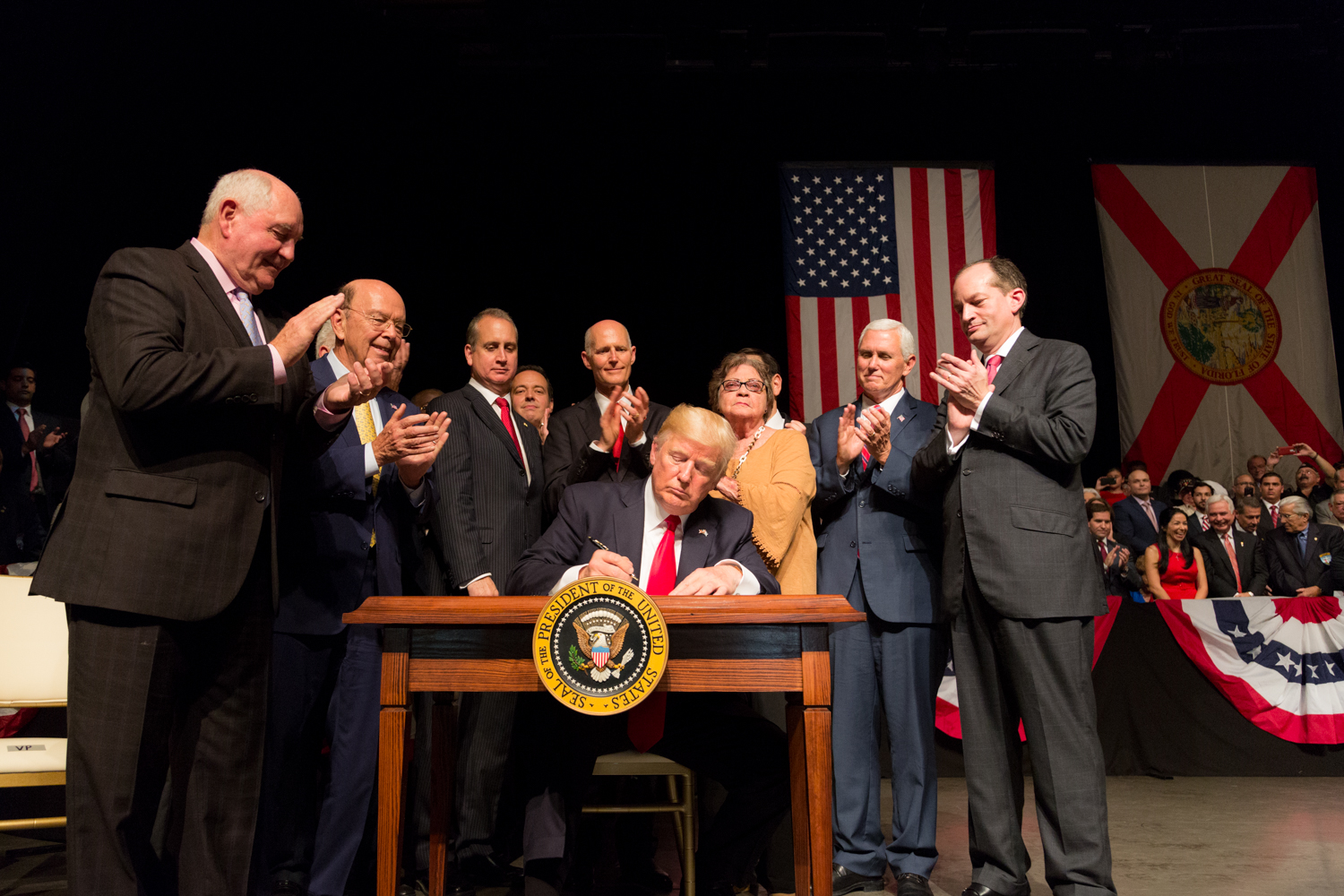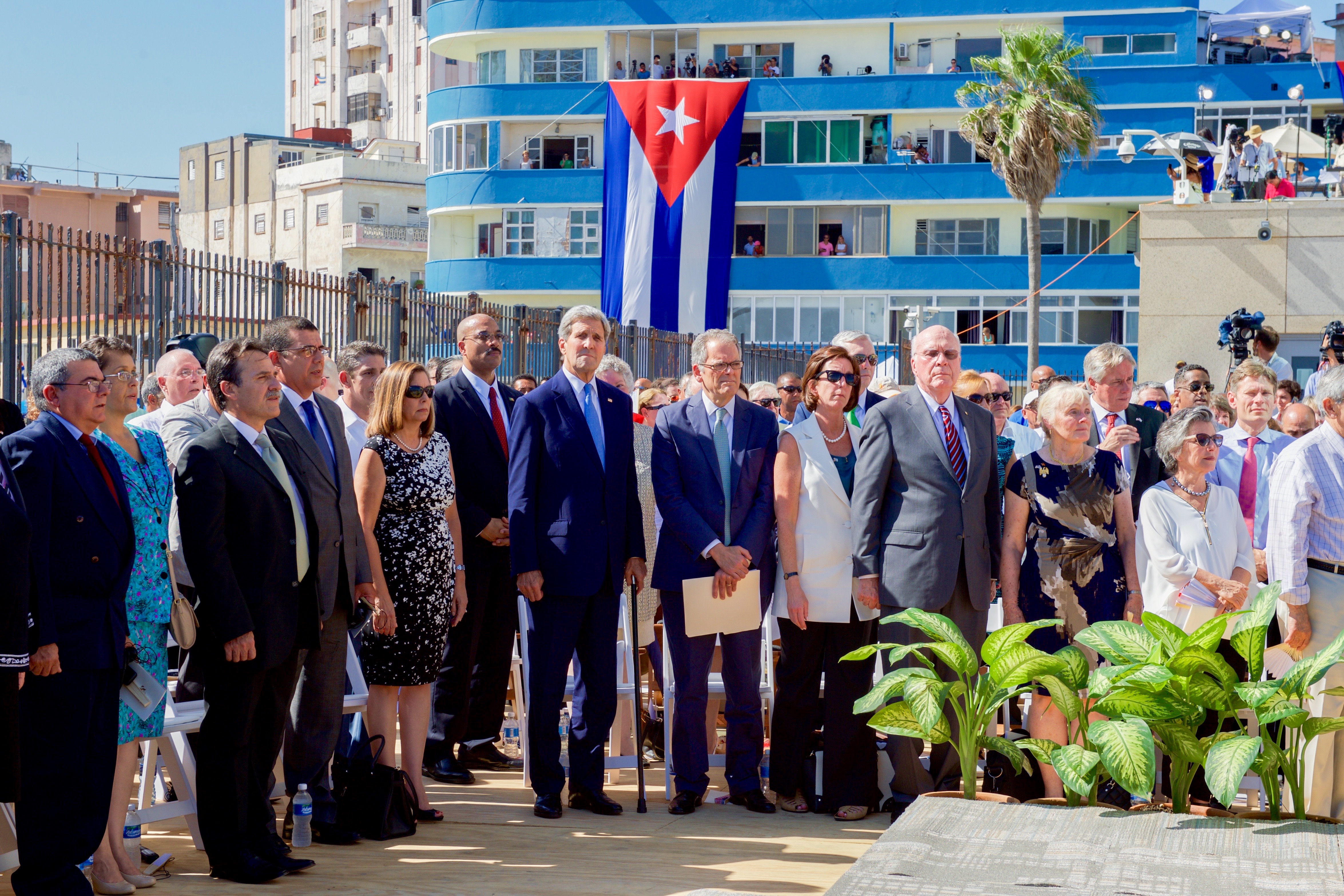Trump, Cuba, and the Art of the One-Sided Deal
 President Donald J. Trump delivers remarks on Cuba and participates in a signing on Cuba Policy Friday, June 16, 2017, at Manual Artime Theater in Miami, Florida.(Official White House Photo by Shealah Craighead)
President Donald J. Trump delivers remarks on Cuba and participates in a signing on Cuba Policy Friday, June 16, 2017, at Manual Artime Theater in Miami, Florida.(Official White House Photo by Shealah Craighead)
For American, and some Canadian, diplomats stationed in Cuba, the last year has been one of confusion, fear, and dismay. As many as fifty diplomats have become sick with a mysterious illness. The attacks seem to have been targeted – despite the 110 embassies currently in Havana, only Americans and Canadians, likely caught in the crossfire, have fallen ill. The culprit is as mysterious as the illness itself; despite half-hearted accusations leveled at Raul Castro and Vladimir Putin, it seems no one is really sure who is targeting Americans, or why they are doing it.

In Washington, there is a general atmosphere of confusion and unease. In late September, all American embassy personnel deemed non-essential were recalled to DC. The Trump administration has called upon the Castro regime to do more to prevent the attacks on its diplomats. However, the extent of what the Cuban government is capable of doing currently remains unknown. Castro has claimed to have no responsibility for or knowledge of the attacks, even going so far as to agree to let the FBI investigate – a move that surprised many. It is possible that Castro is merely a good actor (though, if that is the case, he has drastically improved since telling American journalists that there were no political prisoners in Cuba, an obvious and provable lie). However, such a scenario makes little sense. What reason does Castro have for attacking American diplomats and undermining the deal he helped to strike? And even if he had deliberately harmed American diplomats, why cooperate with the FBI?
Some members of Congress find such reasoning to be compelling. Senator Jeff Flake of Arizona, for example, has said that he believes Castro, citing intelligence reports that have not yet been made available to the public. Other senators, including Marco Rubio of Florida of Florida, himself Cuban-American, have shown more skepticism. Despite the Congressional and FBI investigations into the matter, very little has actually been discovered about this illness, not least its source.
Regardless, the issue has caused some tension in the US-Cuba relationship, which had begun to warm only recently when Presidents Obama and Castro restored diplomatic relations. The Trump administration’s staff are incredulous of claims by the Cuban government that it has shared all it knows. Even if the Cuban government is not responsible for the attacks, the Trump administration believes it could be doing more to prevent them. Chief of Staff John put it succinctly: “We believe the government could stop the attacks on our diplomats.”
Though the mystery illness is no doubt an issue for Cuban-American relations, it may only serve as a convenient excuse for the current administration to backpedal on the deal struck by Obama and Castro. In June, Trump announced that he was “cancelling the previous administration completely one-sided deal with Cuba”, unveiling a partial rollback of the deal. In November, he announced that the United States would impose yet tighter sanctions. Both actions preceded any news of the mysterious illnesses appearing in Havana.

Evidently, the Trump administration has no love for the Castro regime. Though it has not explicitly said so, the Trump administration, like many administrations before it, probably desires the overthrow – or at least the overhaul – of Cuba’s government. This goal is not an uncommon one throughout American presidential history. However, where assassination attempts, invasions by Cuban émigrés, and an embargo failed, moderate sanctions are not likely to prevail. Perhaps an improved relationship with Cuba would not either. It seems the world will have to wait for future American elections to know for sure.
Edited by Phoebe Warren
